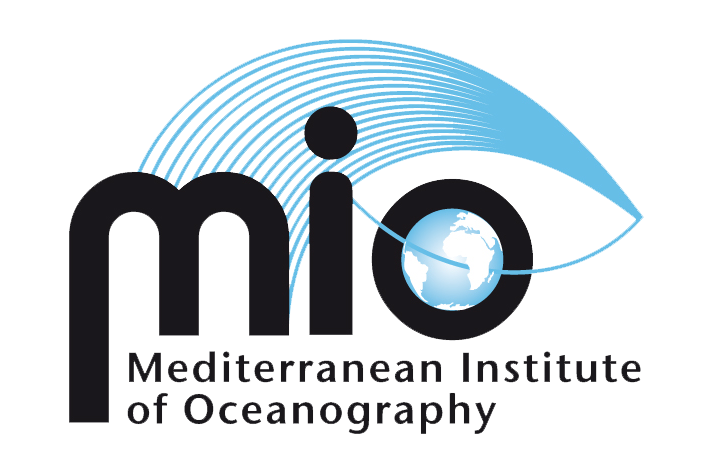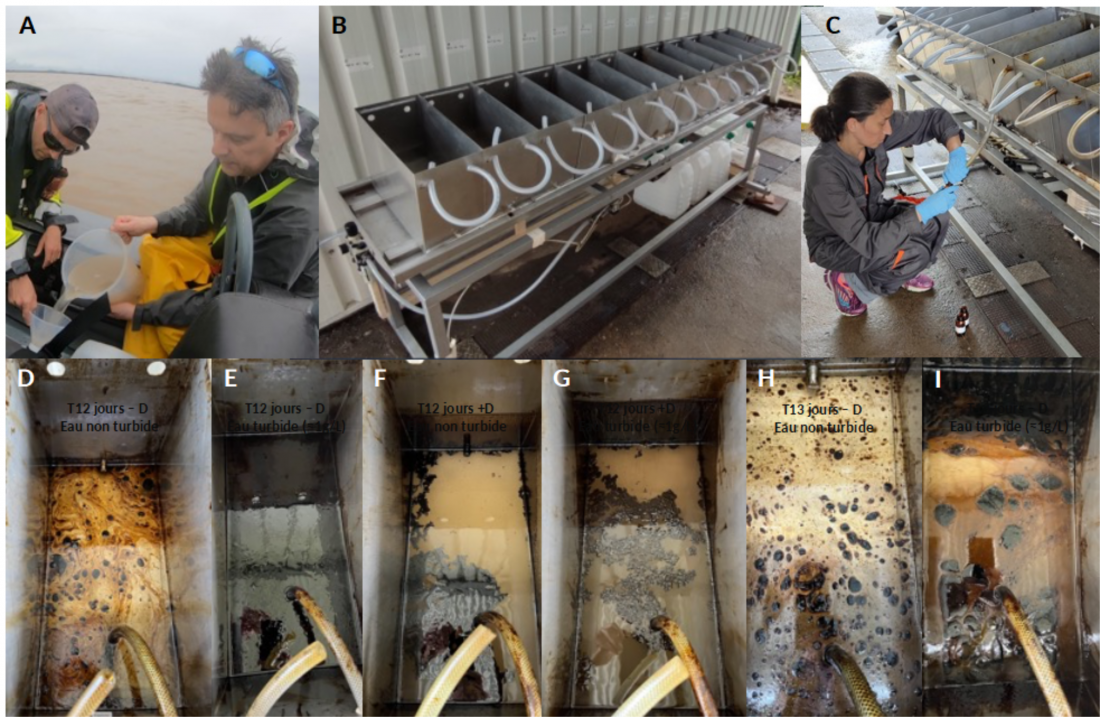Vases Mobiles – Pétrole Project (L. Sylvi, M. Fiard, C. Militon & P. Cuny
As part of their work to improve knowledge of the behaviour of oil spilt at sea in tropical regions, Cedre (Centre of Documentation, Research and Experimentation on Accidental Water Pollution) and MIO conducted an experiment in French Guiana during the month of February-March at the Cayenne Naval Base (Dégrad des Cannes). The objective of this experimental study is to evaluate the fate of a crude oil in contact with turbid waters such as they can be found off the coast of French Guiana. To carry out this experiment, water samples along a turbidity gradient were taken off the coast of Kourou (Fig. 1A) and were then poured into several tanks arranged on an oscillating table (Fig. 1B) that allows constant agitation. The bins were contaminated with crude oil, with or without the addition of dispersants. For 23 days, monitoring of physicochemical parameters of the water as well as water and hydrocarbon samples (Fig. 1C) were carried out in order to follow the degradation of the oil as well as the dynamics of microbial communities. The data from this project will allow a better understanding of the behavior of hydrocarbons (Figs. 1D to I) in this type of environment and if necessary to adapt oil spill response strategies in this area characterized by unique hydro-sedimentary dynamics.
Figure 1. A: water sampling off the coast of Kourou; B: experimental device used; C: water sampling in a tank for hydrocarbon analysis; D to I: examples of oil slick surface evolution as a function of water turbidity and the addition (+D) or not (-D) of dispersants. A rapid evolution of the oil on the surface is observed, suggesting a strong biodegradation activity of the hydrocarbons with a marked effect of turbidity on the behaviour of the oil.


